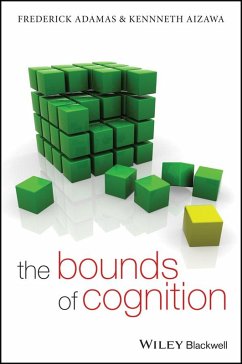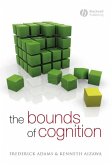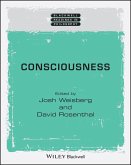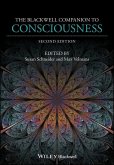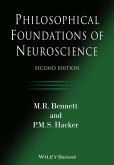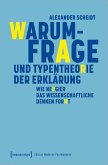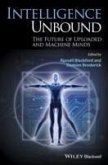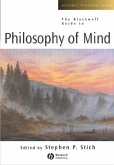An alarming number of philosophers and cognitive scientists have argued that mind extends beyond the brain and body. This book evaluates these arguments and suggests that, typically, it does not.
- A timely and relevant study that exposes the need to develop a more sophisticated theory of cognition, while pointing to a bold new direction in exploring the nature of cognition
- Articulates and defends the "mark of the cognitive", a common sense theory used to distinguish between cognitive and non-cognitive processes
- Challenges the current popularity of extended cognition theory through critical analysis and by pointing out fallacies and shortcoming in the literature
- Stimulates discussions that will advance debate about the nature of cognition in the cognitive sciences
Dieser Download kann aus rechtlichen Gründen nur mit Rechnungsadresse in D ausgeliefert werden.
"Where is human cognition located? Is human cognitive processingliterally constituted (at least partly) by non-neural portions ofthe environment? The contemporary debate about extended cognitionand the extended mind focuses on these questions, among others.Frederick Adams and Kenneth Aizawa's new book, The Bounds ofCognition (BC), contributes wonderfully to this debate. The book iscritical of the extended approach; but Adams and Aizawa (A&A)also work toward a positive view, one that allows, in principle,for extended cognition, while yielding very little of it when fedthe empirical facts."(Philosophical Psychology, November2010)
"The Bounds of Cognition is the most thorough-going,forceful, and compelling critique of EMH so far." (Erkenntnis, September 2009)
"[This book] is without question a worthy and timely challengeto extended cognition, as well as to areas in related enterprisessuch as embodied cognition, situated cognition, dynamical systemstheory and artificial life.... I recommend the book highly toanyone interested in these issues." (Phenomenology and theCognitive Sciences, June 2009)
"This is a well written, well argued book. Written byphilosophers mainly for philosophers.... It makes a seriouscontribution to the extended cognition debate that anyone with aserious interest in the issue needs to study." (Journal ofConsciousness Studies, January 2009)
"Advocates of EMT must undoubtedly examine the arguments andcriticisms that Adams and Aizawa offer in careful detail, becauseThe Bounds of Cognition is the most forceful and mostconvincing criticism of their position so far."(Metapsychology, October 2008)
"The [authors] wrote this book as a reasoned challenge... .[It] offers an excellent overview of the promise, limits,and problems of bounded cognition. Recommended."(Choice)
"Adams and Aizawa have written a book that is going to leave morethan a few researchers in the burgeoning field of embodiedcognition scratching their heads and wondering how they could havesaid those things. In a detailed study, Adams and Aizawa questionthe very foundations of embodied cognition while on the wayelaborating a series of challenges that those who wish to continuein the pursuit of embodied cognition must first address."
-Lawrence A. Shapiro, University of Wisconsin
"Adams and Aizawa provide a timely and important critique of anemerging set of views and arguments often referred to as the'extended mind.' Anyone interested in the current stateof arguments about the extended mind and the future direction ofcognitive science will want to read this book. I look forward toresponding to the arguments."
-Richard Menary, The University of Wollongong, Australia
"The Bounds of Cognition is the most thorough-going,forceful, and compelling critique of EMH so far." (Erkenntnis, September 2009)
"[This book] is without question a worthy and timely challengeto extended cognition, as well as to areas in related enterprisessuch as embodied cognition, situated cognition, dynamical systemstheory and artificial life.... I recommend the book highly toanyone interested in these issues." (Phenomenology and theCognitive Sciences, June 2009)
"This is a well written, well argued book. Written byphilosophers mainly for philosophers.... It makes a seriouscontribution to the extended cognition debate that anyone with aserious interest in the issue needs to study." (Journal ofConsciousness Studies, January 2009)
"Advocates of EMT must undoubtedly examine the arguments andcriticisms that Adams and Aizawa offer in careful detail, becauseThe Bounds of Cognition is the most forceful and mostconvincing criticism of their position so far."(Metapsychology, October 2008)
"The [authors] wrote this book as a reasoned challenge... .[It] offers an excellent overview of the promise, limits,and problems of bounded cognition. Recommended."(Choice)
"Adams and Aizawa have written a book that is going to leave morethan a few researchers in the burgeoning field of embodiedcognition scratching their heads and wondering how they could havesaid those things. In a detailed study, Adams and Aizawa questionthe very foundations of embodied cognition while on the wayelaborating a series of challenges that those who wish to continuein the pursuit of embodied cognition must first address."
-Lawrence A. Shapiro, University of Wisconsin
"Adams and Aizawa provide a timely and important critique of anemerging set of views and arguments often referred to as the'extended mind.' Anyone interested in the current stateof arguments about the extended mind and the future direction ofcognitive science will want to read this book. I look forward toresponding to the arguments."
-Richard Menary, The University of Wollongong, Australia

